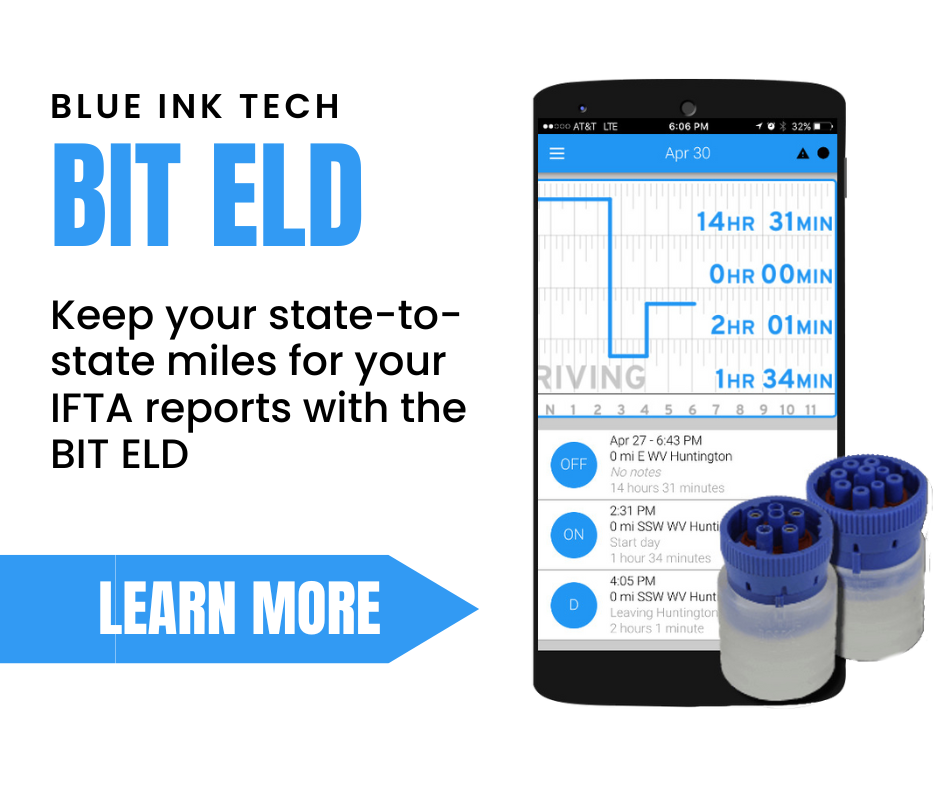What is IFTA in trucking?
The International Fuel Tax Agreement started in 1983. It's an agreement between Canada and the contiguous United States (the lower 48).
The agreement is a tax collection in regards to fuel used in more than one jurisdiction by a qualified motor vehicle. Commercial motor vehicles must pay tax to the states that they consume fuel in. This is different from personal vehicles that pay fuel tax to the state that they purchase the fuel in.
The reason why commercial vehicles have to pay fuel tax to each state that they consume fuel in is because the vehicles are usually heavier and damage roads more that they drive on. To combat this the tax was introduced to help states have the necessary funds available to fix road damage caused by trucks.
Who has to adhere to IFTA?
All non-exempt qualified motor vehicles. A qualified motor vehicle is defined as:
- Vehicle designed, used, or maintained for transporting property or persons.
- Vehicle gross weight more than 26,000 pounds.
- Vehicle has three axles
- Used in combination when weight exceeds 26,000 pounds
Who is exempt from IFTA?
Those who are exempt from calculating IFTA vary by province, state, vehicle, fuel and distance. Specific information can be found here.
How do I apply for an IFTA license?
That varies by state and/or province. Contact your local government that issues licenses. Drivers will want to keep this documentation on them at all times in their permit book which is a requirement with the Federal Motor Carriers Safety Administration (FMCSA). The base jurisdiction that issues your IFTA permit will also give you two decals per each truck you register.
When is IFTA due?
Paying your fuel taxes is done on a quarterly basis. Drivers in the United States must keep track of the distance they drive between states.
- QUARTER 1: January-March, DUE DATE: April 30
- QUARTER 2: April-June, DUE DATE: July 31
- QUARTER 3: July-September, DUE DATE: October
- QUARTER 4: October-December, DUE DATE: January 31
How do you calculate IFTA miles?
There are a couple of different ways that drivers can use to keep track of miles. You can use apps, ELDs or keep track of data by hand.
Truck drivers must report each fuel type for each jurisdiction on separate lines. IFTA recognizes the following fuel types:
- Diesel
- Liquid Propane
- Ethanol
- E-85
- Gasoline
- Liquid Natural Gas
- Methanol
- M-85
- Gasohol
- Compressed Natural Gas
- A-55
- biodiesel
There are separate lines for each of these on the tax form.
Each of the lower 48 states have different tax forms drivers must fill out. Drivers will want to request forms or go online to get forms in their base jurisdiction. If a driver never leaves their base jurisdiction, they do not have to file quarterly IFTA reports.
Don't forget to keep all of your receipts in case of audit. Also, if you pre-pay your fuel, be sure to go back inside and get a receipt. When you pre-pay the receipt does not list the total gallons purchased. Another pro-tip that could be considered is getting a fuel card as it will provide the truck driver with a periodic statement of how much fuel they bought and what state they were in when they purchased it.
Calculating IFTA by hand
If you choose to do it by hand you need to calculate the miles each qualified motor vehicle including off-highway miles, trip permit miles and non-revenue (deadhead, bobtail) miles the truck has traveled from state-to-state. You will need to keep a notebook and be sure to list the dates, times, locations, and all fuel receipts.
Add up the total taxable miles driven in each state.
Next, add up the total amount of all fuel purchased in each state.
Next, divide the taxable miles by the taxable miles per gallon.
This needs to be done for each jurisdiction. You must contact each jurisdiction in which you travel to get a definition of nontaxable miles. Exempt miles are included in your total miles for computing miles per gallon and included in each jurisdiction’s total miles but are excluded from taxable miles.
Using an ELD to manage miles
Some electronic logging devices (ELDs) can help drivers keep track of in-state miles without having to keep track of state crossings or writing things down. Some devices use gps coordinates to determine if a vehicle is inside of a state. These devices are also plugged into the vehicles diagnostic port and can capture the odometer reading automatically at the state crossing.
These additional services are not required by the ELD mandate, not all electronic logging devices may perform these task. Since ELDs are required to collect items like Geo-positioning and odometer readings some ELD providers may build in these capabilities as added services.
What happens if I don't pay IFTA?
Fees and penalties will vary by state and province and drivers could potentially lose their licenses and permits. If a truck driver is paying late there is typically an itemized line on the tax form where the driver can calculate their applicable late fee.
Keep track of your fleets IFTA miles with Blue Ink Tech
The BIT ELD by Blue Ink Tech can help carriers keep track of their fleets in-state miles automatically while their drivers are keeping their hours of service logs. This helps keep drivers from accidentally forgetting to write odometer miles at state lines.
The Blue Ink Tech app will also allow drivers to scan fuel receipts as soon as they fill up their fuel tanks. The receipts are automatically uploaded to carriers as soon as they are scanned in and will automatically calculate your fleets IFTA reports in the Blue Ink Tech web portal.

